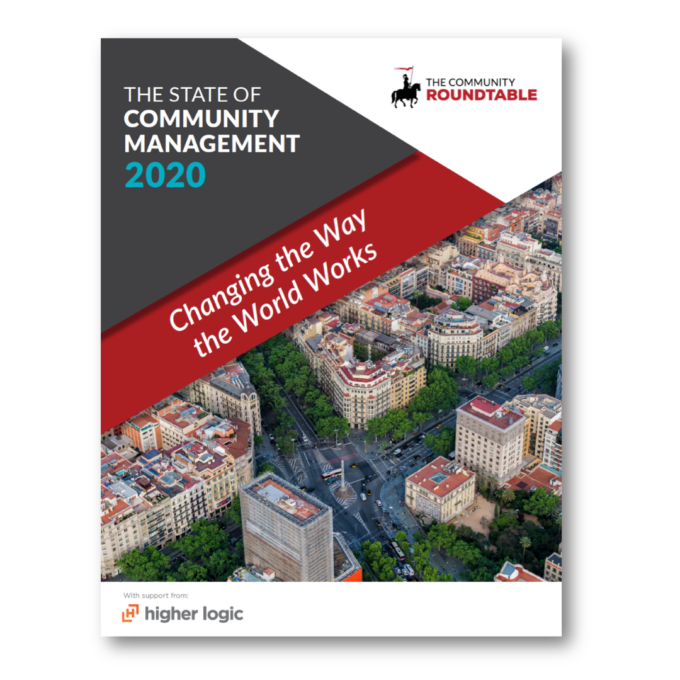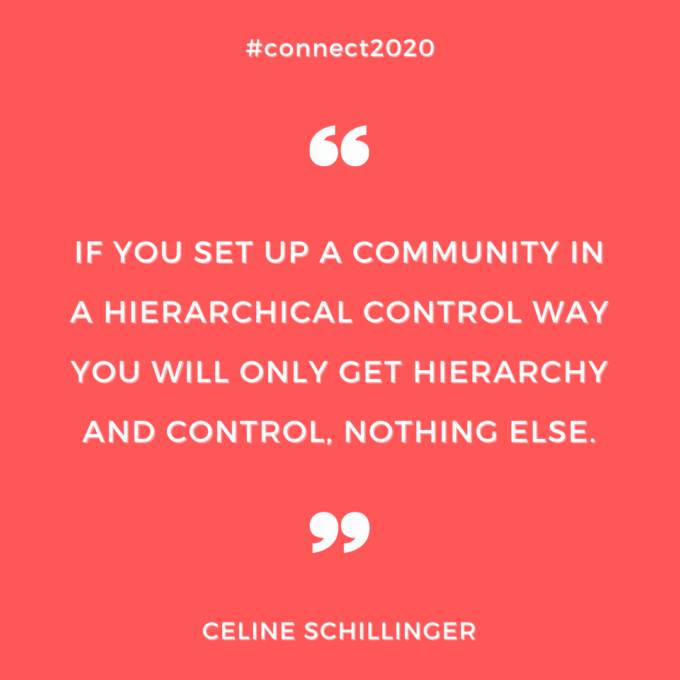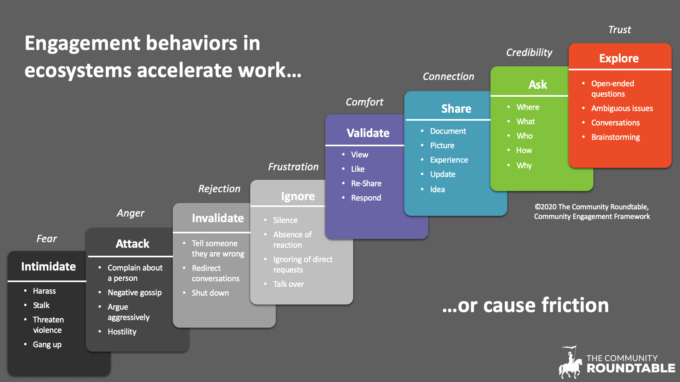
Every year members of TheCR Network, who are among the world’s most innovative practitioners in helping organizations transform their culture and communication practices, convene for TheCR Connect. This year, that looks a little different – and we’ve staggered sessions throughout the month of October – and included a Technology Track and is open and free to the public.
While there is nothing like the intimacy and fun of year’s past when we assembled in Boston, the digital channel has given us opportunities to rethink the goals of our annual event – and get creative about how to replicate those objectives with virtual experiences. It changed how we work, which is just what online communities are doing for organizations across the globe.
In fielding the 2020 State of Community Management research, we saw exciting shifts in the strategic impact and influence of many community programs on organizations. And then COVID-19 hit like a train bursting out of a tunnel. Overnight, organizations went virtual and everyone got comfortable with video calls – even if they might still need a ‘You’re on mute’ sign now and again. Untethered from offices, executives started to understand the purpose of online networks in which employees could socialize, run into each other serendipitously, and collaborate in new ways. Everyone understands, suddenly and viscerally, that ‘The Office’ was never about the building but about the community of people it enabled to connect, discuss, meet, and collaborate.
Community. In the physical world, we take our communities for granted. Communities seem to develop magically – in part because they are complex adaptive systems that we cannot possibly see in aggregate. In reality, communities develop because of a million little behaviors of each member; saying hello or ignoring each other in the morning, bringing in leftover chocolate cake to share, stopping in the hall to chat, seeing the frustration on someone’s face, and asking how they feel, cc’ing executives on emails to deflect accountability, and validating (or invalidating) co-workers in meetings. These little behaviors – or fractals – of the complex system of culture determine whether cultures are healthy and positive or destructive and toxic. In online communities, we can see it all – including how the aggregate of those little behaviors impacts the trajectory of the community culture as a whole, which we categorize in the Community Engagement Framework as a way to measure them and with it, the culture of a group, community, or organization.
Online communities have made what was once implicit, explicit. In doing so we can understand the behaviors that contribute to generating value – and those that destroy trust and value. It has given rise to an entirely new profession – that of community management.

Last week for TheCR Connect, I had the pleasure of inviting three pioneers – Eric Meyers, Céline Schillinger, and Michael Merk – to share what they have learned over the past decade about building communities inside global organizations. These pioneers discovered how online communities could address some of the most pressing communications, leadership, and strategic challenges their organizations faced. Each of them worked at organizations that were straining under the weight and pace of old communications tools and habits while trying to innovate; BASF, Steelcase, Hilti, and Sanofi. Each learned unique and valuable lessons as they navigated this emerging world of digital communities – and each championed and executed innovative approaches.
We touched on the power of online communities to create transparency and trust, accelerate performance, build relationships and culture, and ensure accurate information is available to all. We also touched on many of the challenges; helping break cultures dependency and protection by giving everyone an avenue to lead, helping executives wade in and around the personal and leadership landmines of transparency, and most of all how to help people understand the way power is transformed from something that is risky to share into something that combusts when shared – in ways that propel everyone forward and catalyze collective energy.
Have a listen:

